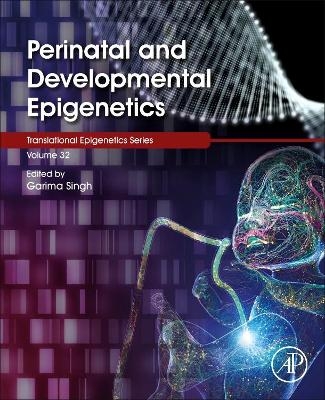
Perinatal and Developmental Epigenetics
Academic Press Inc (Verlag)
978-0-12-821785-6 (ISBN)
Insights and suggestions for future research illuminate approaches for identifying individual disease susceptibility. Concluding chapters highlight preventative and targeted therapeutic pathways to improve quality of life into adulthood.
Dr. Singh is working as Assistant Professor at Pachhunga University College (PUC) campus of Mizoram Central University, Mizoram, India. She has completed her doctorate in 2018 from Mizoram University, India in plant sciences and worked on the pharmaceutical potential of selected traditional medicinal plants. Dr. Singh has 8 years of research experience and has published several research papers in national and international journals having high impact factor like Scientific reports, BMC complementary and alternative medicine, frontiers in plant sciences, etc. Dr. Singh has awarded for her work by several agencies while presenting her research work in India and abroad. Her expertise lies in the areas of utilization of traditional medicinal plants for sustainable development, secondary metabolites extraction and documentation of traditional medicinal pants. Dr. Singh is running one externally funded project to explore the pharmaceutical potential of some selected traditional medicinal plants located in North East India.
Section I: The ever-growing complexity of epigenetic regulation of gene expression
1. Epigenetic regulation of gene expression: An overview of classical and recently discovered novel players: -Role of DNA methylation, Role of Histone modifications, Role of non-coding RNAs
2. Epigenetic regulation of transposable elements and their impact on developmental processes
3. Epigenetic regulation of germ cells
4. Epigenetic regulation of cis-regulatory elements and transcription factors during development
5. Genomic imprinting and developmental physiology: Intrauterine growth and postnatal period
6. Metabolic regulation of epigenetic processes
7. Role of RNA epigenetics in development
Section II: Epigenetic programming of the placenta regulates short-term and long-term health outcomes
8. Epigenetic regulation of placental function
9. Role of placenta in developmental programming of sex-specific adult outcomes
10. Epigenetic changes induced by Assisted Reproductive Technologies (ART) in the placenta and its effect on developmental outcomes
Section III: Epigenetics, hormones, sex and developmental programming
11. Epigenetic and hormone interaction and effect on gene regulation during prenatal and early postnatal life
12. Role of epigenetics in shaping the sex difference in immune function during development
13. Role of epigenetics in shaping sex differences in brain development and behavior
14. Role of epigenetics in shaping sex differences in heart development and later life cardiovascular disease risk
Section IV: Epigenetic programming by adverse perinatal influences
15. Early life endocrine disruptors exposure and epigenetic programming
16. Early life stress exposure and epigenetic programming
17. Early life nutrition and epigenetic programming
18. Early life air pollution exposure and epigenetic programming
19. Early life substance abuse and epigenetic programming
Section V: Advancing translational epigenetic research
21. Modelling early life adversity in the laboratory –: Animal models, their advantages and challenges in extrapolating findings from animal studies to humans
22. Clinical evidence of developmental programming due to early life exposures and long-term effects: Implications for public health
23. Phenotypic plasticity: Adaptive vs Maladaptive response and epigenetic changes
24. Epigenomics: A road to genome-wide characterization of epigenetic changes during development and identifying future individuals at risk of disease susceptibility
Section VI: Pharmacological and non-pharmacological approaches to reprogram the developmental programming to improve the health outcomes
26. Epigenetic signatures as biomarkers of early life experiences
27. Environmental enrichment and its effect on modifying the epigenetic changes induced by early life adversity
28. Dietary targeting of epigenome and its effect on early life adverse influences
29. Early postnatal maternal care and epigenetic programming of HPA axis activity
30. Emerging field of epigenetic editing: Implication for translational purposes for diseases with developmental origin and sex bias
| Erscheinungsdatum | 12.12.2022 |
|---|---|
| Reihe/Serie | Translational Epigenetics |
| Zusatzinfo | 80 illustrations (40 in full color); Illustrations |
| Verlagsort | San Diego |
| Sprache | englisch |
| Maße | 191 x 235 mm |
| Gewicht | 450 g |
| Themenwelt | Informatik ► Weitere Themen ► Bioinformatik |
| Naturwissenschaften ► Biologie ► Genetik / Molekularbiologie | |
| ISBN-10 | 0-12-821785-5 / 0128217855 |
| ISBN-13 | 978-0-12-821785-6 / 9780128217856 |
| Zustand | Neuware |
| Informationen gemäß Produktsicherheitsverordnung (GPSR) | |
| Haben Sie eine Frage zum Produkt? |
aus dem Bereich


